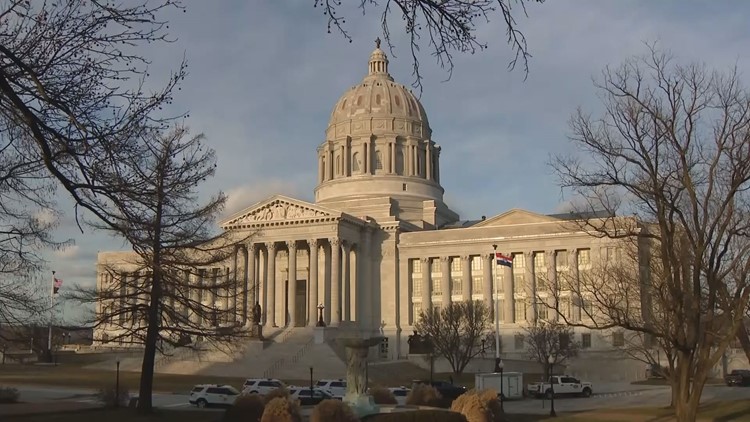JEFFERSON CITY, Mo. — The Missouri House gave lukewarm approval Wednesday to a plan for redrawing the state's eight congressional districts that left both Democrats and some conservative Republicans unhappy and could upend the state's calendar for holding its primary election.
The plan, which received barely enough votes to pass, is projected to keep the state's current political split of six Republicans and two Democrats in the U.S. House. But it failed to receive enough votes to take effect before the state's Aug. 2 primary, raising the potential that the election could be delayed or that district boundaries could change in the middle of the campaign season.
The redistricting legislation now goes to the Senate, where some conservative Republicans are already vowing to push for a map that would give the GOP a chance at winning seven districts.
"We all know there is going to be a war on the other side of the building — there are going to be compromises made," said state Rep. Jim Murphy, a Republican from St. Louis who urged colleagues to pass a plan to at least keep the process going.
The action in the Missouri Legislature on congressional redistricting came on the same day that a separate bipartisan citizens commission gave final approval to a plan for redrawing Missouri's 163 state House districts. It marked the first time since 1991 that the commission agreed on a state House redistricting plan.
Commissioner Harvey Ferdman said the panel "brought honor to our flag today, showing that we can cooperate, we can get things done, we can negotiate, we can compromise."
A separate bipartisan citizens commission charged with redistricting the state's 34 Senate seats failed to agree on a plan after devolving into partisan camps last month. That map likely will have to be drawn by a panel of judges.
Redistricting is occurring in states across the country to account for population shifts noted in the 2020 census. The battle to redraw U.S. House districts has been especially intense, as both Democrats and Republicans seek boundaries that give their candidates the best chance of winning and their parties a shot at taking control of the narrowly divided chamber.
Lawmakers in Democratic-led Illinois and Republican-led North Carolina, for example, both passed maps that critics describe as gerrymandered in their favor. In Tennessee, Republicans have put forth plans to split up a Democratic-held district in Nashville that would give the GOP a shot at winning an 8-1 advantage in U.S. House seats.
Some conservative Republicans in Missouri want to take a similar approach by splitting up a Kansas City-area district held by Democratic U.S. Rep. Emanuel Cleaver and pairing the urban residents with Republican-leaning rural residents.
Though the proposed map passed by the House is projected to retain a 6-2 Republican edge, the Republican margins in the Second District in suburban St. Louis are not as high as some Republicans prefer. Some conservatives argue the Second District could potentially flip to Democrats over the course of a decade.
The map approved by the state House is "completely out of step with the values and perspectives of the people of this state," said Sen. Bill Eigel, a St. Charles County Republican who is part of that chamber's conservative caucus.
Democrats also contend the map doesn't reflect Missouri, but for the opposite reason. They were upset that House Republicans rejected their amendments to shore up a heavily Democratic district in St. Louis with even more minority voters and to exclude some Republican-leaning suburbs from the Kansas City-based district.
The House passed the redistricting legislation by an 86-67 vote, just four more than needed for passage. A subsequent vote to ensure the bill would take effect immediately upon the governor's signature failed on a 95-55 vote, falling 14 votes short of the necessary two-thirds majority. Without an emergency provision, the redistricting legislation would take effect Aug. 28 — almost four weeks after the primary election.



